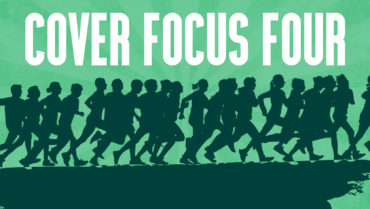MillennialEYE asked:
What is one stereotype that you feel people in your age group come up against, and how do you see that stereotype being challenged by you and your peers in ophthalmology?
Imane Tarib, MD, answered:
Residency where I train (Morocco) lasts 5 years. I am currently in the final straight stretch that is the fifth year. At this stage, the stereotype that I come up against most as a female resident is the false assumption that I have limited ambitions. I often find I’m viewed unenthusiastically when I express my desire to further my education and to be involved in research after residency. Because medical school lasts 7 years and residency, 5 years, some of my friends and family members expect my plan for 2020 to be to finally settle into a medical practice, with little or no surgical activity. This is not any less perfect of a plan, but why stop there when the desire to do more is so appealing to me?
Nevertheless, no matter how determined I am—and it is a daily exercise to stay resolute—I know that the path is long and exhausting. Fortunately, having idols to look up to helps keep me going. I have developed a passion for finding high achievers, mostly women, who help remind me and my peers that success is possible, that the standards can be as high as we set them, and that we are not alone. At the end of a long day, I enjoy occasional conversations about these topics with my fellow female residents in the hospital hallways or in the parking lot. I make it my mission to let them know about the wonderful female role models in ophthalmology, their achievements, and their current missions. These discussions are always motivating!
Social media also plays a tremendous role in my daily motivation. With these platforms, it is easy to gain a glimpse into the lives of so many influential female role models in surgical subspecialties—women with dual (sometimes more) degrees, doctors who are heavily involved in research, and lady bosses with leadership positions in academia, private practices, and even politics. I make sure to share, repost, retweet, forward, or carry out any other modern means of information spreading in order to promote them. The feedback is always stimulating for my peers—female and male—and for myself.
The more young ophthalmologists I meet from different programs, countries, and backgrounds, the clearer it is to me that the false assumptions about us will fade away very soon. Ophthalmology is a vibrant field, the margin for advancement and innovation is quite large, and young female ophthalmologists are taking up more and more room in the space.
I strive to acquire the knowledge needed to become an excellent ophthalmologist, to keep improving, and to contribute to the advancement of eye care. I find these are goals I share with most of my peers—I know that now, as connecting with them is easier than ever before, thanks to the power of networking. The support from my physical entourage is something I feel thankful for every day. However, as our vocation seems to unify young ophthalmologists from around the world, I find the greatest inspiration from my peers here in Rabat and through the virtual connections that I cherish dearly.



